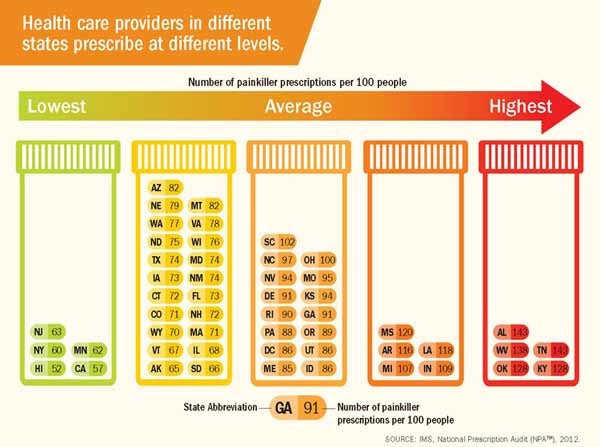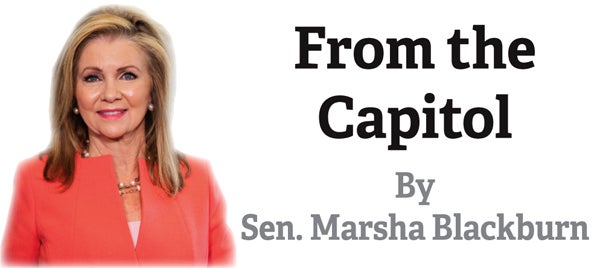Fight against prescription drug abuse must begin with doctors, patients
Published 10:46 am Monday, March 21, 2016

“Epidemic” is the word used by Tennessee health officials to describe the prescription drug abuse problem in the state. It pervades every segment of Tennessee families and communities.
“It is a major problem in this county,” said Sheriff Dexter Lunceford earlier this year, noting it leads to thefts, break-ins and other crimes.
For many years, alcohol was the primary substance of abuse and the state’s prevention and treatment efforts focused on that population. However, in 2012, prescription opioids surpassed alcohol as the primary substance of abuse for people whose treatment was funded through the Tennessee Department of Mental Health and Substance Abuse Services.
Not coincidentally, Tennessee is one of the three most prescription drug-happy states in the entire nation. Doctors in Tennessee hand out an astonishing 18 prescriptions each year for every man, woman and child living in the state. Most disturbingly, the number of medical orders for the opioid painkillers oxycodone and hydrocodone has gone up 500 percent and 300 percent respectively since 2000 — and these medications are by far the most addictive among all the commonly used pharmaceutical drugs. More than 70 percent of Tennesseans who admit to using prescription drugs for non-medical purposes say they got the pills from a friend or relative, so it is clear that distribution of narcotic painkillers by medical practitioners has helped fuel the state’s prescription drug abuse epidemic.
Of the 4.85 million adults in Tennessee, it is estimated that 4.56 percent (221,000) have used pain relievers in the past year for non-medical purposes. Of those adults, it is estimated that 69,100 are addicted to prescription opioids and require treatment for prescription opioid abuse. The other 151,900 are using prescription opioids in ways that could be harmful and may benefit from early intervention strategies.
Even more alarming is the use rate of prescription opioids among young adults (18-25-year-olds) in Tennessee, which was 30 percent higher than the national average in 2011. Also concerning, the survey also found that almost 7 percent of Tennessee’s 12-17-year-old population have used prescription drugs for non-medical reasons. Also in recent years, the number of deaths related to opioid overdose has increased by 200 percent.
The Obama administration has issued new guidelines urging physicians to prescribe fewer powerful painkillers, leading to some concern.
Both lawmakers and patients are concerned that the prescribing guidelines, issued Tuesday by the Centers for Disease Control and Prevention, could create hurdles for people who legitimately need strong pain medicine, such as Percocet, OxyContin or Vicodin.
Two key elements of the new guidelines advise doctors to give patients no more than a three-day supply of opioid painkillers to treat most cases of acute pain, and trying other treatment options first before prescribing opioids for chronic pain. Many are concerned that the new guidelines would make it too hard for people who need prescription pain medications to get them, and would lead to more thefts.
Ultimately, however, the best solution to this problem will — and must — start in the home. If we were to trace the origin of abused prescription drugs in Tennessee, in most every instance a trail leads right back to the bathroom cabinets and medicine drawers of men and women who obtained these pills legally from physicians. The truth is that as long as pharmaceutical drugs are kept in places where friends, family members, children and other visitors to the home can find them, the threat of pilfering will continue to exist. No matter how remote the possibility of theft might seem, everyone with prescription medications in their home should assume the worst and keep their medications in secret, hidden locations — preferably under lock and key. And whenever a prescription runs out or the drug is no longer needed, any leftover drugs should be disposed of safely and immediately, leaving no opportunity for them to fall into the wrong hands.
Prescription drug abuse is out of control in Tennessee, and this is a problem that won’t go away without changes in attitude and common practice. When used outside of a medical context, drugs like oxycodone and hydrocodone are a threat to human health and safety. No one should have any illusions about what can happen when doctors prescribe these medications indiscriminately or when patients fail to use them — and dispose of them — properly and responsibly.


